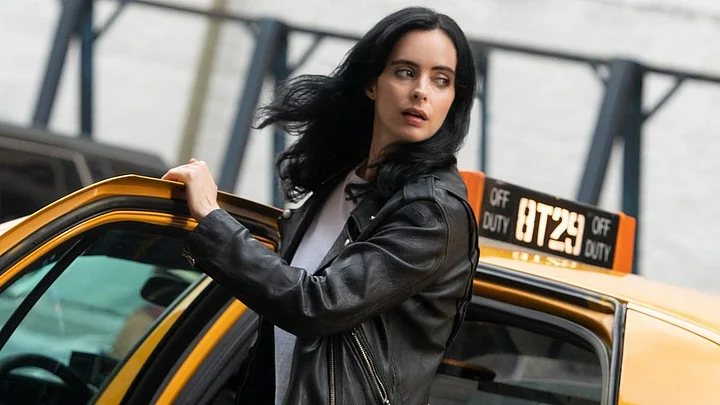Not gonna lie - when the first season of Jessica Jones hit Netflix I was ecstatic. This was a show that exceeded my expectations from a superhero story with a villain that truthfully represented a physical and psychological threat to the hero. Killgrave the villain embodied a foe for most real-world women – as the man who gaslights his way into their lives, ruining them piece by piece, one day at a time. This was refreshing in a Marvel universe packed with villains whose only purpose is to obliterate cities. The show also gave us a heroine whose personality had reasons to be acerbic, and interesting small scale fight sequences that backed up the solid drama within the narrative.
Season 3 of Jessica Jones contains the same kickass heroine (played by Krysten Ritter), but none of the other elements that made the show popular in the first place. Like Luke Cage and Iron Fist, this season doubles up on the soap opera style drama while relinquishing intelligence, bloom and a villain to match up to Jones.
It’s a banal season that not only does not do justice to the half-a-decade-long Defenders buildup but also comes across as an inelegant goodbye to audiences who took the time to invest in its characters. For a show that stood out in a glut of superhero programming, it’s rather cring-ey to see its final season becoming the very thing it rallied against.
The problems begin right at the onset where we’re presented more of the same – Jones is still an alcoholic with no social life, still hooking up with people to gain momentary distractions, and still having the exact same dynamic with Trish (Rachel Taylor) and Jerry (Carrie-Ann Moss) despite the events of the previous seasons. It’s frustrating to see the world having no repercussions to whatever happened in the Defenders and Daredevil episodes, while Jones behaves as if the actions of The Hand had no impact on her.
To make things immediately worse, the show gives us a procedural mystery because Jones is supposed to be a detective, but the mystery at hand is is thrown around like a paper ball around an office and ultimately dumped in the can.
Jones’ investigation has no inquiries but a series of MacGuffins manufactured by her new flame Erik (Benjamin Walker) who seems to have some psychic abilities.
The convenient discoveries Jones makes, without displaying any skill of her own, leads her to Salinger (Jeremy Bobb) – a villain whose threat level matches the fiery intensity of a dandelion, and whose crimes are so clichéd and uninspired you begin to wonder if he’s some sort of a red herring to hide the real baddie. But there’s no such real baddie, and we get some awkward high school drama renditions of Silence of the Lambs between Salinger and Jones. The motivations of Salinger are agonizingly routine, his presence is devoid of the menace that the show needs, plus there is no insight into how he managed to off his previous victims. There is constant referral (mostly by himself) that he’s some sort of a super genius but we never understand how or why. This character is, in fact, so lacking in charisma he could head over to the set of What we do in the shadows and effortlessly play the Energy Draining Vampire.
On the other side of the spectrum there’s a side story of Trish being enticed by the dark side of vigilantism, another hackneyed plot device that offers nothing new to the superhero genre.
It’s hard to digest a 2019 superhero show that debates the ethics of becoming a vigilante because that lesson has imparted to us so many times it’s practically embedded in our arteries.
Often in movies or shows where such boring platitudes of morality and justice are the meat of the drama, there’s at least some potent action to enjoy, like the Punisher and Murdoch skirmish in the second season of Daredevil. Unfortunately the action – or any entertainment level for that matter - here is ridiculously sparse. The show wants you to be caught up in the drama and not require action, but the dramatic foundations are weak, and after thirteen grueling episodes you’ll be left quite exhausted by the bleak monotony.
The season ends on an irksome dual note – both as an unsatisfactory closure to the Netflix story arc and also with a clumsy tease of what could happen if the show is ported to Hulu after the Disney takeover – with the latter rendering everything that happened in the last two seasons inconsequential. As bad as this season was, it is unfair to completely blame the showrunners because it is clear that they had to hastily reroute after the reception to The Defenders and the announcement of Disney’s streaming platform. In Marvel’s vast repository such collateral damage is a trifle and both creators and audiences are dispensable.
(At The Quint, we question everything. Play an active role in shaping our journalism by becoming a member today.)
